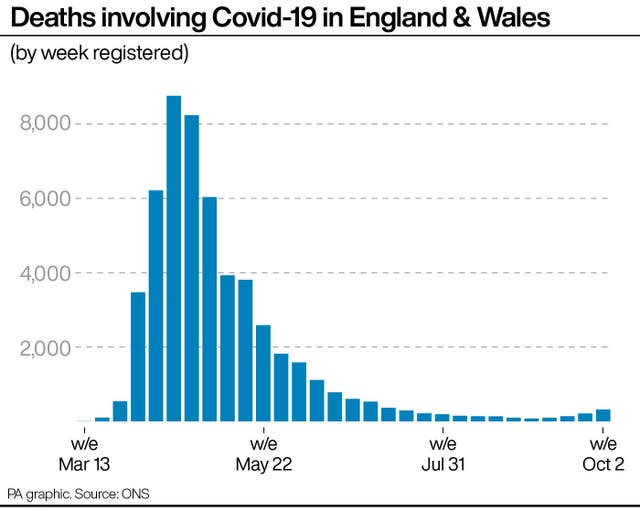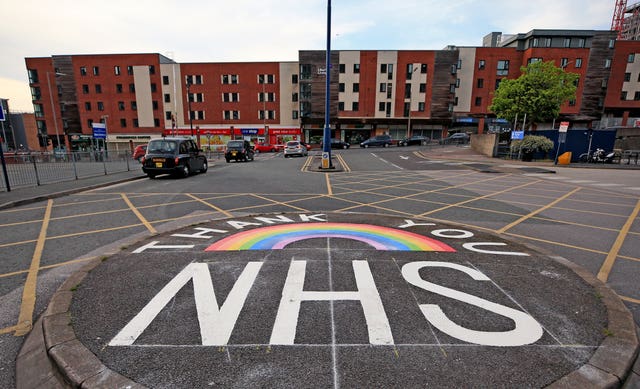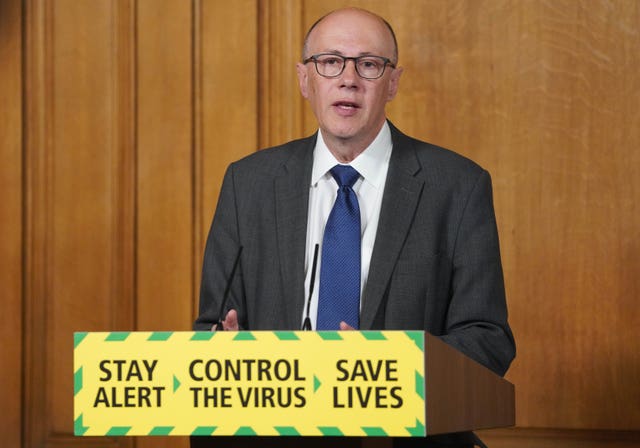Covid-19: Hospitals cancel routine operations to cope with second wave
Several hospitals have said they must now strip back routine work to concentrate on coronavirus.

Hospitals are cancelling routine operations to make way for a rise in Covid-19 patients.
University Hospitals Plymouth NHS Trust said on Tuesday it was temporarily pausing non-critical planned surgery at Derriford Hospital, although day case procedures are still going ahead.
Meanwhile, Victoria Eaton, Leeds director of public health, said hospitals in the city were “very close” to having to strip back non-Covid services, and areas may struggle for staff to fill Nightingale hospitals put on standby.

Plymouth’s chief operating officer Kevin Baber said in a statement: “Due to a growing number of Covid patients and a need to ensure we can keep everyone safe we continue to temporarily pause non-critical inpatient surgery at Derriford Hospital.
“Please note that surgery for patients attending the hospital as day cases, without needing an overnight stay, is still going ahead for most patients.”
Offering an apology to patients, he said it was a difficult decision but safety was the top priority.
“We have to ensure patients who have suspected or confirmed Covid are safely cared for away from those patients without Covid,” he said.
“This involves reconfiguring our wards to ensure everyone remains safe.”
In Leeds, Ms Eaton said hospitals wanted to clear their backlog of work and deal with delayed treatments and procedures.
“The challenge of this time is that other NHS services are not being stood down in the way that they were in the spring,” she told reporters.
“We’ve got a huge backlog now of people who desperately need surgery and treatment for their conditions, which colleagues in the NHS are absolutely committed to continue with, and therefore it gives them very little wriggle room within the hospital to accommodate all of those cases plus the new Covid ones that are now coming in.”
She said medics were working to look “in the round of how we save the most lives, directly or indirectly, from Covid”.
Ms Eaton said it would currently be difficult to find enough people to staff Manchester, Sunderland and Harrogate Nightingale hospitals, which have all been put on standby.
She said: “The buildings are there, the issue is how we get the staffing into the Nightingales because, in spring, the workforce plan was for people who were stood down from other services to go to staff the Nightingales.

“So I think there is a real challenge around how to get enough NHS staff to make those sites work. It’s incredibly challenging this time round.”
Swansea Bay University Health Board said on Tuesday that all routine planned cardiac surgery at Morriston Hospital has been temporarily suspended following a localised outbreak of the virus.
Some 10 patients and five staff have tested positive over the last few days – with most cases within cardiac services, it added.
In Northern Ireland, the Belfast Health Trust has cancelled all elective procedures this week to cope with a rise of Covid-19 cases being admitted to hospitals.
On Monday, Liverpool University Hospitals NHS Foundation Trust chief executive Steve Warburton told staff in a memo that it had reached a “critical point”.
He said the trust was scaling back planned procedures, adding it was “taking a phased approach to reducing our elective programme, while exploring options with other providers to maintain some of this work in alternative locations”.
He added: “We will continue to prioritise surgery based on clinical need, with a view to maintaining urgent and cancer surgery where possible.
“We will continue to maintain access to outpatient appointments wherever possible, and maintain diagnostic activity.”
NHS England’s medical director said hospitals in the North West and North East could end up treating more patients than they did during the peak of the first wave of Covid-19.
Professor Stephen Powis said the NHS is open for all patients but keeping coronavirus infections under control is the key to other patients getting the treatment they need.

“Liverpool University Hospital has the highest number of Covid-19 patients, currently more than 250 patients with Covid in its beds,” he said.
“And in the last four weeks, hospitals in the North West and the North East have witnessed a seven-fold increase in Covid patients in their intensive care units.
“And if infections continue to rise, in just four more weeks they could be treating more patients than they were during the peak of the first wave.”





